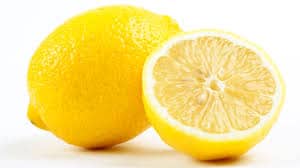| Orange peels, are they allowed in the compost bin? Citrus peels are full of minerals that are good for your plants. but often oranges and the like are heavily sprayed with some kind of glazing agent and toxins. Another reason to be careful with citrus peels in the worm bin is that these peels mold quickly. And with this particular fungus, penicillin is released. That penicillin kills the bacteria in your worm hotel that in turn help the compost worms with pre-digestion. My point of view is: Natural is organic and unsprayed better. But if you do have sprayed peels, it does not matter much whether you throw them in the organic waste bin and then collect non-organic compost from the municipality, or whether you immediately compost those sprayed peels yourself or use them in the garden. But in the worm bin I use them minimally, because of that penicillin. In 1998, 1,000 trucks of orange peel and pulp in Costa Rica poured over a piece of land. 17 years later, the area was transformed into a green paradise. Princeton researchers published this article about it in 2017. Fortunately, a more accessible piece has also been written about this project. Both in English. The conclusion is that orange juice peel contains many substances that contribute to soil improvement. So it’s a shame to throw away. Summarized: -No citrus peels in the worm bin. -For the organic vegetable garden only organic peels in the regular compost bin, but then cut it well small (so that it is broken down faster with less chance of mold). Especially if you have a ‘cold’ compost heap. -Non-organic peels can be used in the same way in the regular compost bin -You can also simply bury the peels in your plants. For my rose bush I just received a whole bag of orange peels from the supermarket. At the press machine they have bags full every day, they were happy to be rid of them. I randomly dug them into the ground around the bush and am now waiting for the ‘Costa Rica’ effect. |
Citrus peels in your worm bin or compost bin

